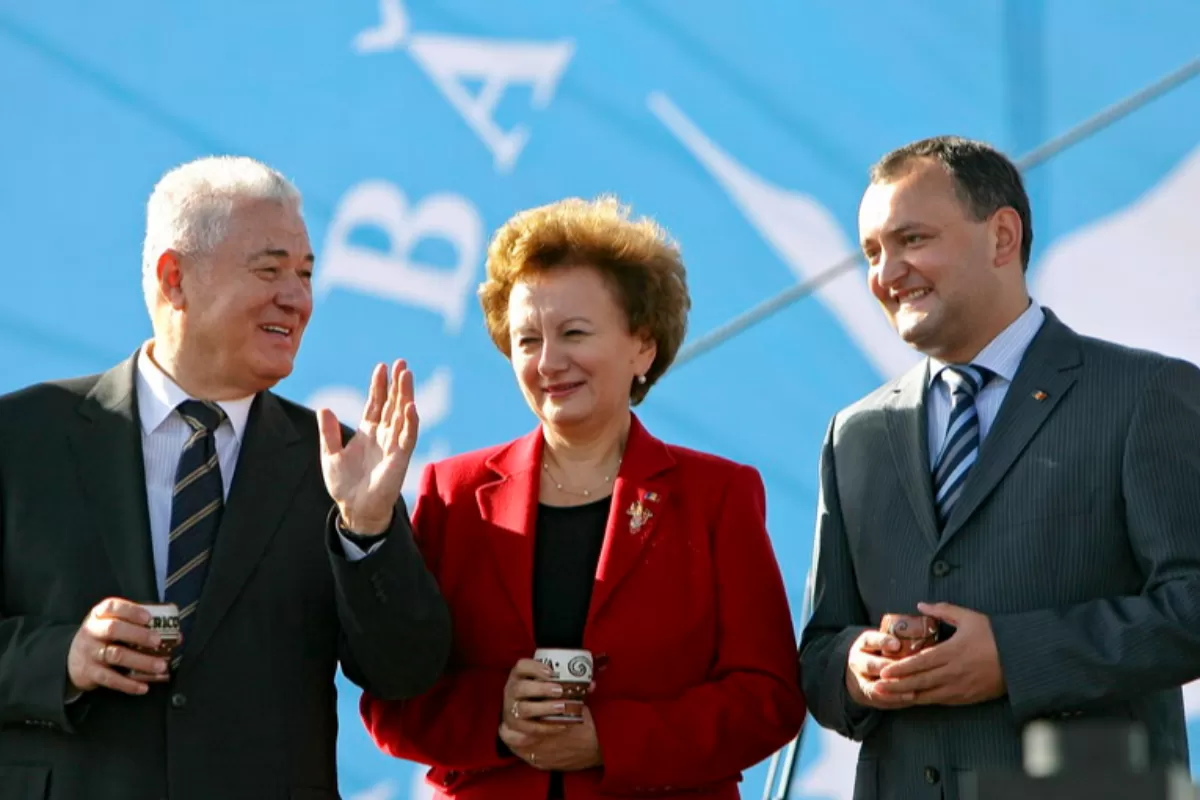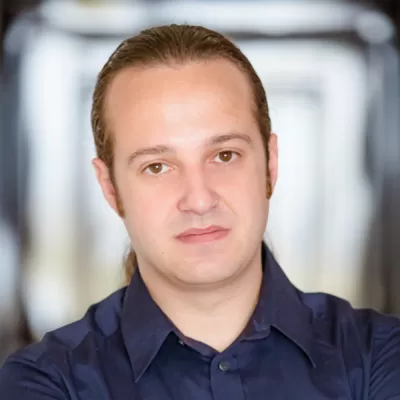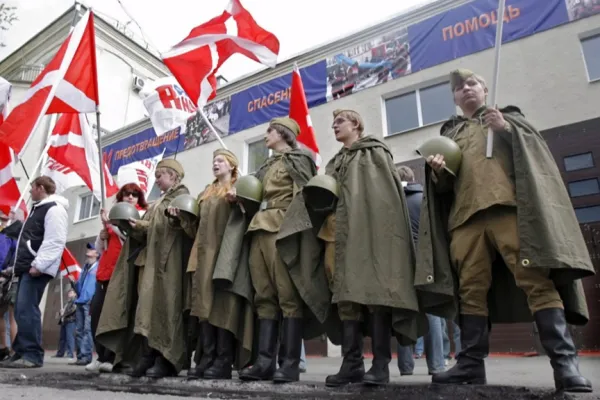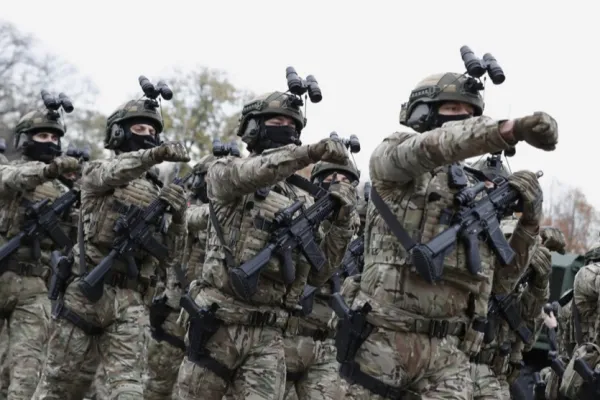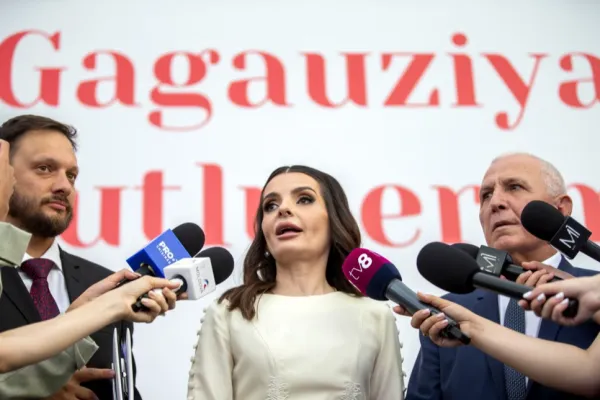The surrender or transfer of power have always been the center of attention in Chisinau, which proves that democracy, even after 30 years of independence from the Soviet Union, is still fragile.
The Soviet model of the power vertical
The former Communist President Vladimir Voronin, who ruled Chisinau with an iron fist for almost a decade, the absolutist oligarch Vladimir Plahotniuc, and now the former president and current parliamentary majority leader Igor Dodon have all clung desperately to power when the electorate has opted for other politicians.
The abusive nature of their leadership became obvious when they were about to be changed and when they resorted either to violence, as in April 2009, or to preparations for potential violence, as in the months before his Plahotniuc’s escape in June 14, 2019, or to threats of non-compliance with the Constitution, as Igor Dodon is currently doing.
Until this very day, the power vertical has remained a constant in the mentality of these leaders, who have dominated Chisinau politics for the last 20 years, following the Soviet/Russian model.
It is a type of mentality in which the "father of the nation" holds the power regardless of the form of political organization, be it a presidential or a parliamentary republic.
All these leaders thought they were immovable, and they went down into the black pages of the history of the Republic of Moldova as despots capable of walking over dead bodies in order not to give up power.
Voronin did it during the "Twitter Revolution" of April 2009. Plahotniuc was stopped at the last minute in June 2019 by a massive external intervention to prevent the same scenario, when his paid supporters, "titushky" (young people from the sports groups associated with the criminal environment -a.n.) and even the state law enforcement forces were ordered not to let the representatives of the new power in Chisinau enter the institutions' headquarters.
Today, the leader of the Socialists in Chisinau, Igor Dodon, follows in the footsteps of his former mentors and colleagues - Voronin and Plahotniuc.
Procedural tricks and threats
Soon after last Thursday’s decision of the Constitutional Court, which gave a positive opinion on President Maia Sandu’s request to start the legal procedures for the dissolution of Parliament, after two failed attempts to appoint a new government, Igor Dodon came out with a statement he made in Russian:
"I am sure that we’ve all witnessed Maia Sandu's attempts to usurp power using three judges of the Constitutional Court in the style of a fugitive oligarch. The answer to these attempts can be the same as in 2019: non-recognition of the Constitutional Court’ opinion, a vote of no confidence in three members of the Constitutional Court and calling for their resignation, an appeal to international partners to intervene and stop these attempts at a constitutional coup in order to restore the rule of law in the Republic of Moldova ", Dodon wrote on his Facebook page.
Dodon has tried to overlap Maia Sandu’s image with that of Vladimir Plahotniuc, during whose rule the state institutions were fully seized, only to justify his desperate attempt at clinging to power. More precisely, Dodon wants Parliament to remain undissolved and the president not to decree snap elections.
Just a few days earlier, on April 1st, the parliamentary majority led by Igor Dodon and the acting Ciocoi government, de facto controlled by the PSRM as well, had introduced the state of emergency. The move was a clumsy attempt at postponing the inevitable dissolution of parliament by two months, with the possibility of extension, because the law prohibits such actions during a state of emergency.
The Government, however, did not adopt significant restrictions to help curb the spread of the coronavirus, which obviously raised questions about whether the state of emergency was used only as a desperate means to remain clung to power.
The state of emergency would not be justified by the epidemiological situation either, as its peak, when probably it would have helped, has been overcome, the number of infections is decreasing and the new batch of approximately 200,000 doses provided by Romania and the international COVAX platform can help improve even more the health-crisis in that country.
Maneuvers and pressure on the Court
During all this time in which he has accused Maia Sandu of controlling the Constitutional Court, Dodon has tried, through his people and allies, to ensure his own influence over this court. A former Socialist deputy, Vladimir Turcan, is already a judge of the Court; now an attempt has been made to appoint a second one: the chairman of the Parliamentary Legal Commission, the Socialist deputy Vasile Bolea, a close friend of Dodon’s. Bolea has announced that he will run for the position left vacant at the Court by Judge Eduard Ababii, who died earlier this year of Covid-19. The Superior Council of Magistracy (SCM) is the institution that must organize a contest for the vacant position of judge. The interim Minister of Justice, the Socialist Fada Nagacevski, has tried to hasten the SCM's decision and force the institution into organizing earlier the contest that Bolea has great chances of winning. Prior to last Thursday's decision of the Constitutional Court, Nagacevschi attended the SCM meeting to put pressure on it. The embarrassing situation was reached in which Nagacevschi was simply disconnected from the SCM's online meeting for "interfering in the SCM's activity" while trying to speed up the process of electing the new judge of the Constitutional Court. Moreover, Nagacevschi himself had previously stated that he, as interim minister, could no longer attend the SCM meetings. Also, prior to the decision giving Maia Sandu the right to dissolve the current configuration of the Legislature, the Socialist Zinaida Greceanii, the head of the Chisinau Parliament, had sent a request to the Constitutional Court to take note of a Council of Europe recommendation according to which Parliament cannot be dissolved if there is a parliamentary majority, a statement taken out of context by Greceanii with the obvious aim of trying to manipulate the situation. This has not been a first for Greceanii either. In April 2009, when she was prime minister, she went public and urged parents to keep their children at home and not take part in protests, as the authorities would use their weapons against them.
Obstacles and excuses to postpone the inevitable
After the Constitutional Court's decision on Thursday on the dissolution of Parliament and the organization of snap elections, Igor Dodon went on the national television in the evening and threatened that the dissolution of Parliament was now impossible, due to the emergency situation. "Parliament has its agenda, we are a parliamentary state, Parliament could approve a decision stating that it does not recognize the decisions of the Constitutional Court, as it was in 2019, it has every right, there is a precedent in this regard," said the PSRM leader Igor Dodon on "Moldova live", a show on the public television. Moreover, Dodon threatened that the state institutions under his political control as leader of the parliamentary majority would not provide the about 120 million lei necessary for the organization of snap elections. "Today, the ambitions of a frustrated politician have won, a politician who wants to become the second Plahotniuc at all costs. Citizens have not won today. People will go through a period of instability for at least 6-7 months, after which we could reach a new deadlock created by Maia Sandu. Imagine that, after the elections, a new majority is created with which Maia Sandu does not agree. An extremely dangerous precedent has been set, "Igor Dodon said. Earlier, throughout his 2016-2020 presidential term, Dodon fluctuated in his views on who should lead the country. In the first three years of office, when the power was held by Plahotniuc through the Pavel Filip puppet government and the parliamentary majority led by his godson, Andrian Candu, Dodon stated that he’d been elected freely, by popular vote, so he was vested with legitimate power by the people. After the expulsion of Plahotniuc, who was his de facto ally, Igor Dodon acted as if the government of Ion Chicu and the Parliament of Zinaida Grecenii were mere annexes of the Presidency. Dodon also took control over the most powerful institutions and appointed his advisers to leading positions of the Intelligence and Security Service (SIS), the National Anticorruption Center (CNA) and the General Prosecutor's Office. Currently, after losing the autumn presidential election, Igor Dodon has returned to the rhetoric that Parliament is the most representative institution of the state and has called for the limitation of the president's control over some institutions he had previously subordinated to himself as head of state.
These changes of perspective regarding the organization and responsibilities of the Moldovan institutions are not specific only to Igor Dodon. Both Vlad Plahotniuc and Vladimir Voronin before him tried to impose institutional configurations matching their current political interests, in order to keep state institutions captive.
Dodon, just like them, will not agree to snap elections because polls indicate a poor score for his party and the left-wing forces. On the other hand, the main right wing party, the Action and Solidarity Party, is close to forming the majority alone, being credited in the most recent poll with over 41%.
In the scenario in which this party could form the majority on its own, this would be a first in Chisinau politics since the proclamation of independence, as voting in the pro-European or right-wing area has been fractioned in the past 30 years.
To the Republic of Moldova, such a scenario could represent a fundamental change of the geopolitical vector and a pro-European power vertical from top to bottom, while observing the balance of power in the state.
A different configuration of power could provide the chance to start pro-European reforms, but most importantly it could lead to the modernization of the state and the change of the current Soviet-born leadership paradigm in Parliament. One with strong kleptocratic valences that has existed for three decades in the Republic of Moldova.

